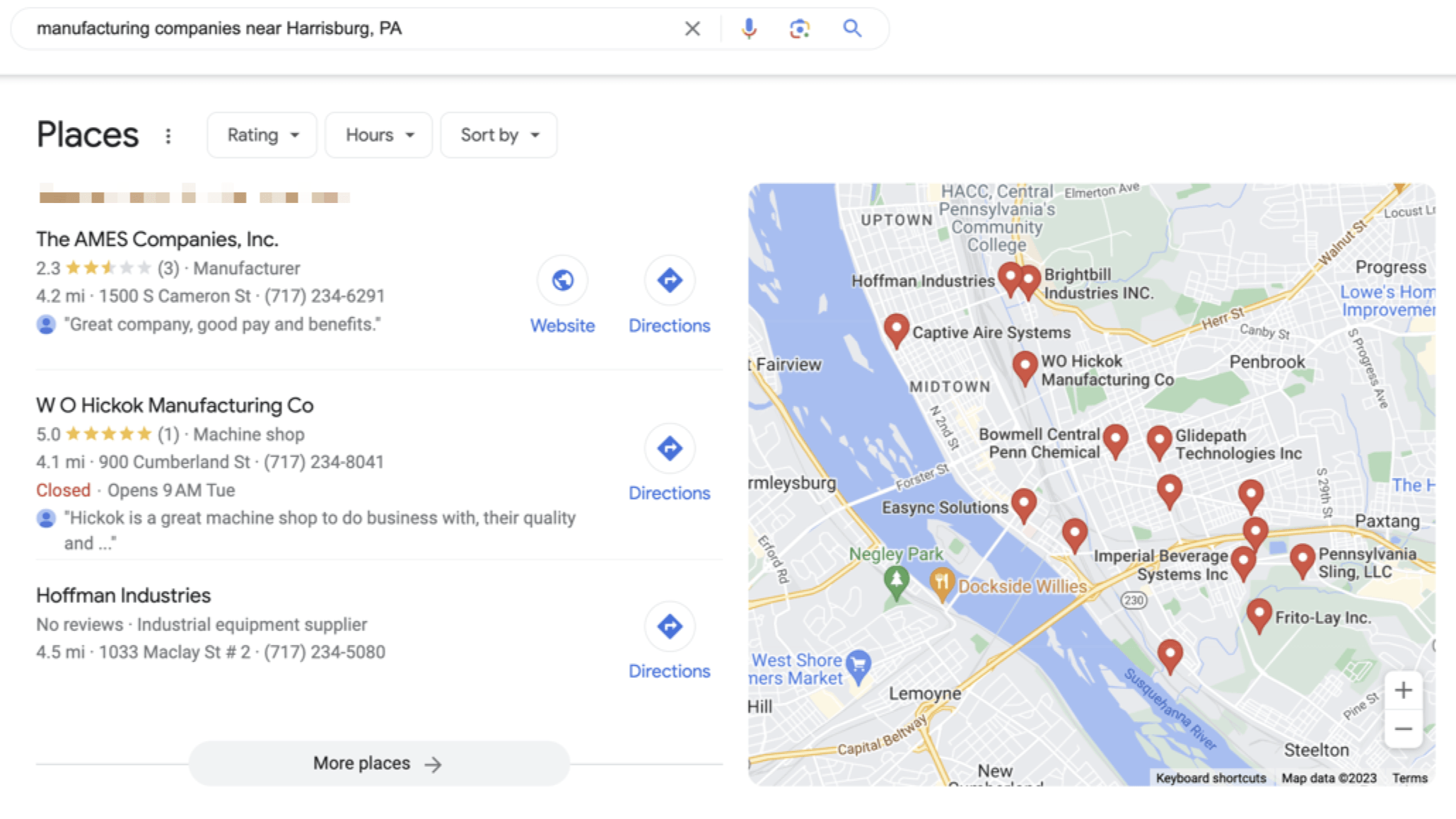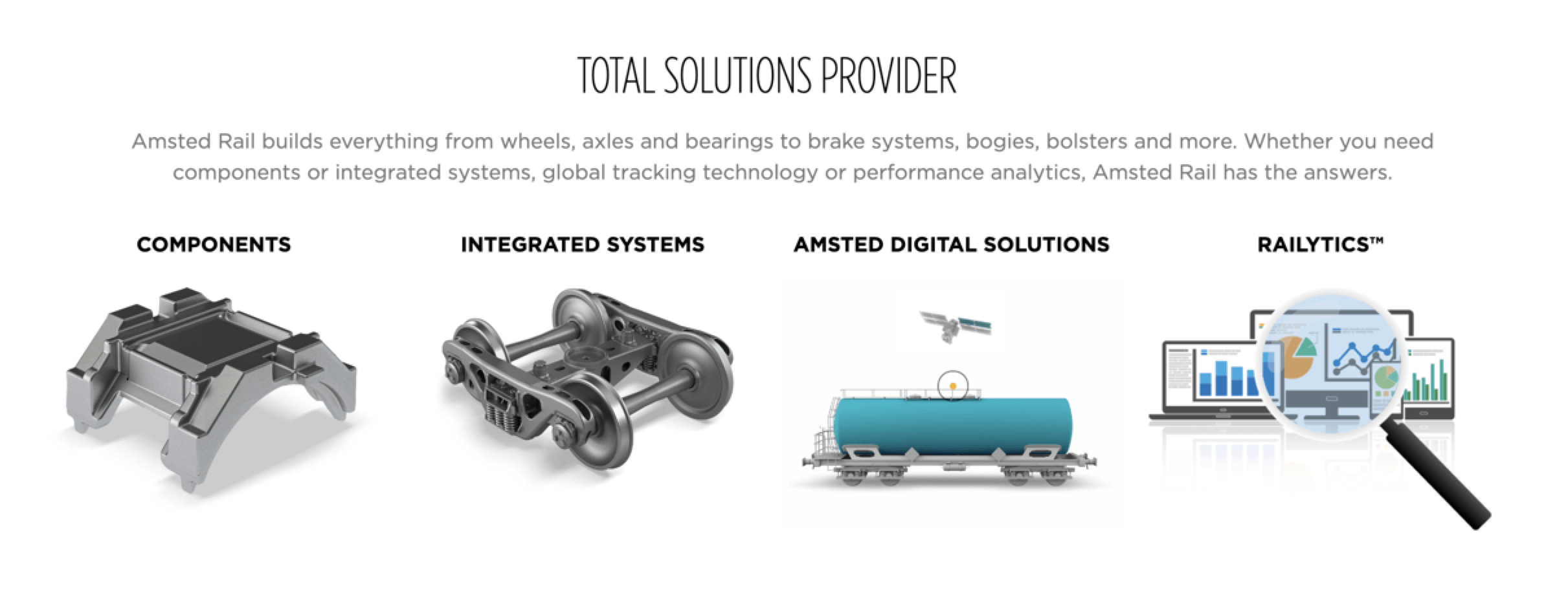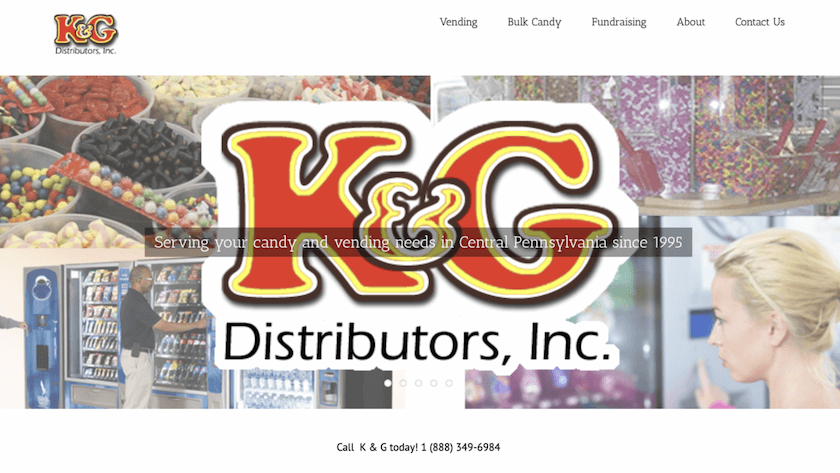Search engine optimization (SEO) is the process of growing an organization’s online visibility — and it’s critical for lead-gen businesses in the industrial and manufacturing sector. Learn more about industrial SEO and how to do SEO for industrial companies now!
What is industrial SEO?
SEO for industrial companies is the process of improving your company website to appear higher in search engine results pages (SERPs). The process focuses on making your site more valuable and useful to users, like by producing helpful content, improving page speed, and more.
Who should use industrial SEO services?
There are many companies that fall under the “industrial” umbrella, but they all likely have the same goal — to generate the most business. Here are a few examples of companies that could use industrial SEO:
- Manufacturing facilities
- Distribution and storage centers
- Made-to-order (MTO) facilities
- Warehouses
Get SEO help from industrial SEO pros 
Attract more customers with professional SEO services from WebFX — the team behind SEO.com that’ll bring 235,000+ hours of industrial SEO experience to your campaign.
Why does SEO for industrial companies matter?
Industrial services will be one of the most competitive spaces in 2024, and in some categories, digital marketing investment increases are outpacing demand growth. This will drive up the cost of getting visits and inevitably leads.
As a result, the need to improve marketing analytics is non-negotiable and should be on the top of your list for 2024 initiatives. You must understand what channels are driving closed sales, as it is no longer good enough to focus on cost-per-lead.
We need to evolve and focus on cost-per-close and invest in the right marketing mix to move that forward. This will enable better selectivity in our efforts and enable you to maintain and even level-up your ROI.

Industrial SEO matters because people, whether shopping as a business or as a consumer, use search engines like Google and Bing to find what they need. If your organization isn’t present in those search results, you’ll miss reaching (and closing) valuable leads.
With search engine optimization, you can enjoy the following benefits for your business:
- Competitive content: Even though SEO might seem outside the industrial world, many companies are already using it to get ahead. If you want to give yourself a chance at intercepting customers, you need to optimize your site.
- Better rankings: Industrial SEO marketing helps you rank higher in the SERPs. That means when people are looking for your services, your company will appear at the top of the list, encouraging more clicks and conversions.
- Satisfied customers: Part of optimizing your site is ensuring your users have the best experience, which can encourage more conversions and long-term satisfaction. By creating a seamless transition from lead to customer, you can show them you care and respect their business.
How to do SEO for industrial companies
Learn how to do industrial SEO with the steps below:
- Audit your SEO: Use a free tool like Screaming Frog to audit your existing SEO strategy. Screaming Frog focuses on your on-page and technical SEO. For an in-depth look at your off-page SEO, try the free version of Ahrefs.
- Prioritize your updates: Use your audit to prioritize which SEO issues to fix first. If you use Screaming Frog, it’ll provide recommendations on which issues to prioritize.
- Research your keywords: What are buyers searching to find businesses like yours? Find out with keyword research. Use a tool like Keywords Everywhere, Semrush, or Ahrefs to get keyword metrics, like volume and competition.
- Produce your content: Based on your keyword research, start producing content. While you can focus on bottom-of-the-funnel searches, consider reaching users earlier in the funnel with informational topics.
- Optimize your content: For maximum results, your SEO content should include your target or related keywords in key places, like your title tag, meta description, and content. Focus on readability, though, when making these insertions.
- Submit your content: While Google is effective at discovering new content, it’s worth using Google Search Console to submit this content so the search engine can crawl and index it.
- Measure your performance: With SEO analytics tools like Google Analytics 4 and Google Search Console, you’ll have insights into your organic search performance. Use these tools to understand traffic, rankings, and user experience. You can also use them to prove the value of SEO to leadership.
The above is a basic overview of how to do SEO for industrial companies. For a more in-depth walkthrough, check out our SEO Basics Guide.
3 tips for industrial SEO marketing
Improve your industrial SEO marketing performance with these three tips:
Let’s dive into each one below.
1. Create buyer personas
If you haven’t nailed down your target audience, you should consider creating buyer personas to help you pivot your SEO to people most likely to benefit from your services.
Buyer personas are characters that you create to represent the end user for your services. Some factors you can use include:
- Age
- Job title
- Income
- Education
- Industry
- Location
For example, if you offer manufacturing services for other businesses in your area, you might be looking for established business owners. By having this image of a user in mind, you can create better content that targets their needs.
2. Use tools where possible
SEO tools can help simplify the process. There are various tools available to help you with each step in the process, from keyword research to link building and beyond. Here are a few options to start with and what they can help with:
- Ahrefs: Keyword research, competitor analysis, link tracking
- Salesforce: Customer data storage, sales automation, lead scoring
- Google Analytics 4: Web and app tracking, customer journey tracking, event tracking
3. Track your results
Finally, if you want better results from your SEO, you need to track your results. Without analytics, you can’t see what’s working and what you could change.
There are plenty of metrics to focus on that can show your campaign’s health, but here are a few important key performance indicators (KPIs) to start with:
- Conversions
- Organic traffic
- Click-through rate (CTR)
Examples of SEO for industrial businesses
As you can imagine, there is no one-size approach to SEO. With so many different companies, goals, and needs to account for, there’s no way to have the same success with one approach.
Let’s look at manufacturers and distributors as an example of SEO and how industrial SEO differs depending on your goals.
Manufacturers
First, let’s look at how manufacturers use SEO. When users search for manufacturing companies, they will get sponsored results but also local search answers since most people want to work with local manufacturing options:

As a manufacturing company, you will likely target other businesses, wholesalers, retailers, or end-users. Your goal will be to show that you can create quality goods that they can either buy from you or a distributor.
For example, look at this well-designed about page and the content for a railcar manufacturing company:

Some ways you can use industrial SEO marketing would be:
- Creating a Google Business Profile to show up in local search
- Adding detailed service pages that target some of your specialty products
- Targeting manufacturing keywords related to your business offerings
- Posting reviews to your website as a testimony to your work
All of these will help users find you as they search for a quality manufacturing company.
Distributors
Now, let’s consider distributors and how they might use SEO. In contrast to manufacturers, your target audience would be people looking for a supplier of goods or a way to purchase specific items. This could include end users or other businesses.
For example, this company is a beverage distributor that provides vending machines to businesses:

Your goal is finding people interested in the goods that you have access to and making sure they understand why your company is the best option. With SEO, you could:
- Target local SEO and keywords to find local users in need
- Create product and service pages for all your offerings
- Add photos and videos that detail your process
- Writing content related to your offerings on your blog
As you can see, SEO is unique depending on the goals and use cases. Though the overall results might be similar — more revenue and customers — your individual needs and path will vary.
Improve your industrial SEO approach today
Learning about SEO is one thing — creating a strategy is another. It takes time and practice, but you can start optimizing your site to stand out in your industry today.
If you want to learn more about SEO, read more informative articles here on SEO.com, or contact us online to chat today!
Let’s Drive Results Together 

Meet
The top digital marketing company behind SEO.com.
Ready to get results? Connect with us, today!






